
Aix-en-Provence: The Gem of Southern France
Aix-en-Provence, often simply referred to as Aix, is a charming city in the heart of Provence, southern France. Known for its stunning architecture, vibrant markets, and artistic heritage, Aix is a must-visit destination for any traveler seeking an authentic French experience. The city's streets are lined with plane trees and adorned with fountains, offering a picturesque setting that seems straight out of a painting. Aix-en-Provence is renowned for its rich cultural history. The city was home to the famous painter Paul Cézanne, and his influence can be felt throughout the town. Visitors can explore his former studio, Atelier Cézanne, which has been preserved almost exactly as he left it. The Musée Granet, another cultural highlight, showcases works by Cézanne and other prominent artists, making it a haven for art lovers. The city's old town, Vieil Aix, is a labyrinth of narrow streets filled with boutiques, cafés, and traditional markets. The Cours Mirabeau, a grand avenue bordered by leafy trees and elegant mansions, is perfect for a leisurely stroll. Don't miss the bustling markets, especially the daily produce market at Place Richelme, where you can sample local delicacies like lavender honey, olives, and fresh cheeses. Aix-en-Provence also offers a thriving culinary scene. From quaint bistros serving Provençal dishes to Michelin-starred restaurants, there is something to suit every palate. The region is famous for its rosé wines, and a visit to a local vineyard for a wine tasting is highly recommended. Whether you're exploring its historic sites, enjoying its natural beauty, or indulging in its culinary delights, Aix-en-Provence promises an unforgettable experience.
Local tips in Aix-en-Provence
- Visit the daily market at Place Richelme early in the morning to avoid the crowds and get the freshest produce.
- Wear comfortable shoes as the city's cobblestone streets can be tough on your feet.
- Explore the quieter side streets to find hidden gems and less touristy spots.
- Don't miss the chance to sample Calissons, a traditional Provençal confectionery unique to Aix.
- Consider visiting in spring or autumn when the weather is pleasant and the tourist crowds are smaller.
- Learn a few basic phrases in French; locals appreciate the effort and it enhances your travel experience.
Neighbourhoods in Aix-en-Provence
Aix-en-Provence: The Gem of Southern France
Aix-en-Provence, often simply referred to as Aix, is a charming city in the heart of Provence, southern France. Known for its stunning architecture, vibrant markets, and artistic heritage, Aix is a must-visit destination for any traveler seeking an authentic French experience. The city's streets are lined with plane trees and adorned with fountains, offering a picturesque setting that seems straight out of a painting. Aix-en-Provence is renowned for its rich cultural history. The city was home to the famous painter Paul Cézanne, and his influence can be felt throughout the town. Visitors can explore his former studio, Atelier Cézanne, which has been preserved almost exactly as he left it. The Musée Granet, another cultural highlight, showcases works by Cézanne and other prominent artists, making it a haven for art lovers. The city's old town, Vieil Aix, is a labyrinth of narrow streets filled with boutiques, cafés, and traditional markets. The Cours Mirabeau, a grand avenue bordered by leafy trees and elegant mansions, is perfect for a leisurely stroll. Don't miss the bustling markets, especially the daily produce market at Place Richelme, where you can sample local delicacies like lavender honey, olives, and fresh cheeses. Aix-en-Provence also offers a thriving culinary scene. From quaint bistros serving Provençal dishes to Michelin-starred restaurants, there is something to suit every palate. The region is famous for its rosé wines, and a visit to a local vineyard for a wine tasting is highly recommended. Whether you're exploring its historic sites, enjoying its natural beauty, or indulging in its culinary delights, Aix-en-Provence promises an unforgettable experience.
When is the best time to go to Aix-en-Provence?
Iconic landmarks you can’t miss
Fontaine de la Rotonde
Aix-en-Provence's iconic 19th-century fountain: a stunning landmark where art, history, and Provençal charm converge at the heart of the city.
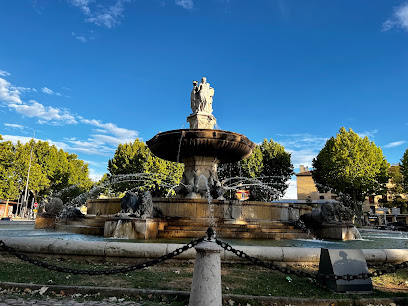
Hôtel de Caumont
Step back in time at this meticulously restored 18th-century mansion, now a world-class art center in the heart of Aix-en-Provence.
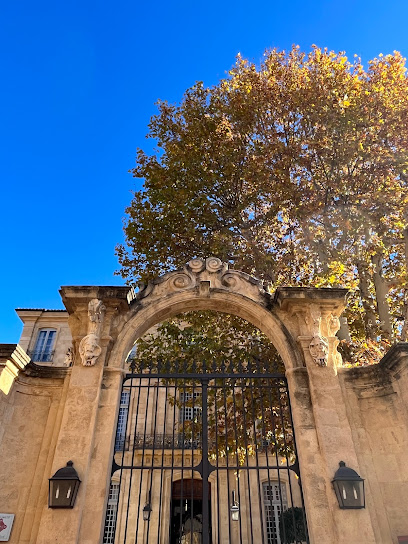
Musée Granet
Explore art through the ages at Aix-en-Provence's Musée Granet, from ancient artifacts to Cézanne masterpieces.
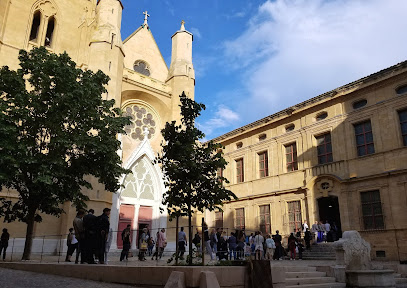
Paroisse Cathédrale Saint Sauveur Aix-en-Provence
Explore centuries of art and architecture at Aix-en-Provence's Cathédrale Saint-Sauveur, a captivating blend of Romanesque, Gothic, and Baroque styles.
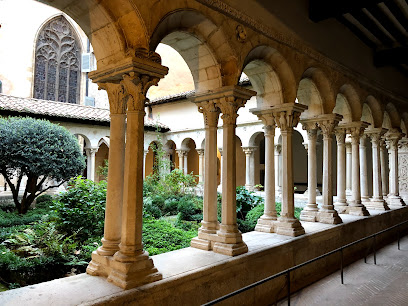
The Village Des Automates
Discover a world of animated wonder at The Village Des Automates in Saint-Cannat, a family-friendly amusement park with unique animatronic displays.
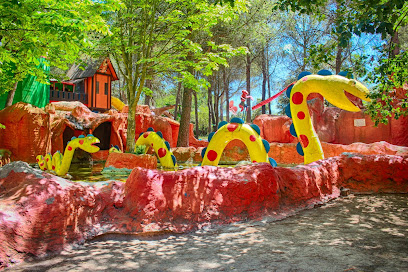
Promenade de la Torse
Discover a tranquil oasis in Aix-en-Provence: stroll along the Torse stream, enjoy lush greenery, and escape the city bustle in this 8-hectare park.
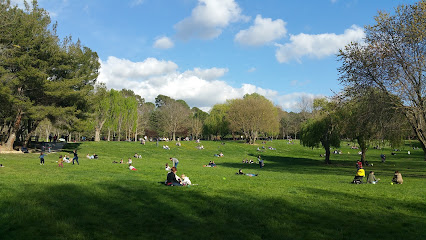
Cézanne's studio
Step into the preserved studio of Paul Cézanne in Aix-en-Provence and experience the creative space of the 'father of modern art'.
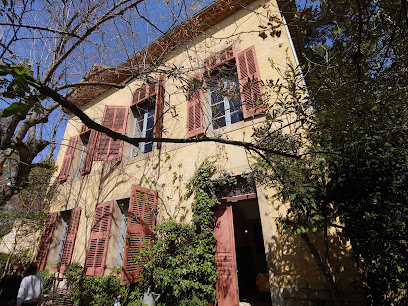
Place d'Albertas
Discover Place d'Albertas, a serene 18th-century square in Aix-en-Provence with stunning architecture and a tranquil fountain, a true Provençal gem.
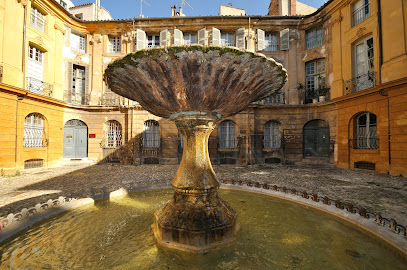
Pavillon Vendôme
Discover the Pavillon Vendôme in Aix-en-Provence: a 17th-century architectural gem with exquisite gardens and contemporary art exhibitions.
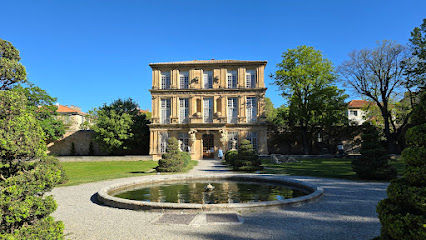
Tourist Information Center
Your gateway to exploring Aix-en-Provence: expert advice, maps, tours, and tickets for an unforgettable Provençal experience.
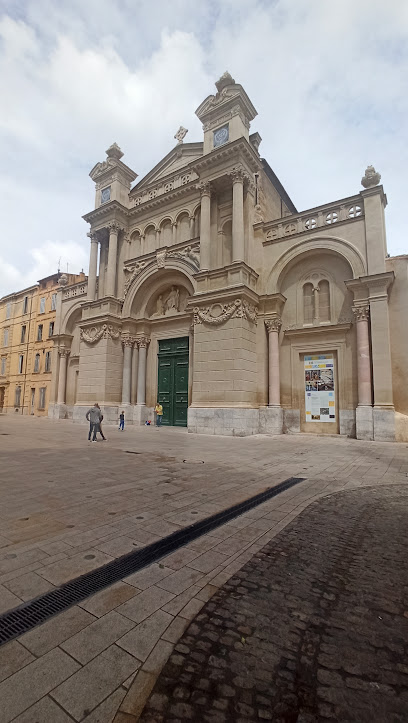
Château de la Gaude
Experience Provençal luxury at Château de la Gaude: wine, art, history, and gardens await near Aix-en-Provence.

Place des Quatre-Dauphins
Discover the timeless elegance of Place des Quatre-Dauphins, a baroque square with a stunning fountain in Aix-en-Provence's historic Mazarin district.
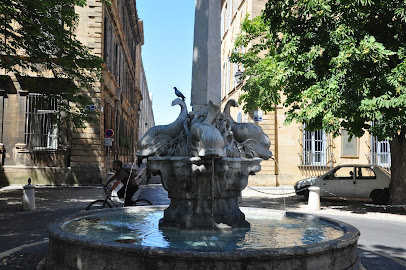
Promenade de l'Arc
Escape to the serene Promenade de l'Arc in Aix-en-Provence: a green oasis offering riverside paths, recreation, and natural beauty.
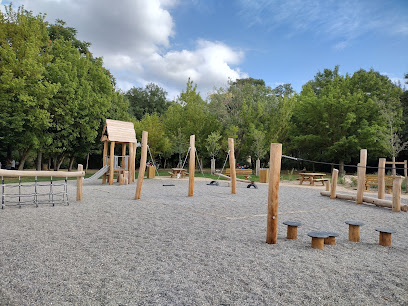
Field of the Painters
Walk in the footsteps of Cézanne and witness the breathtaking views of Mont Sainte-Victoire that inspired a master.
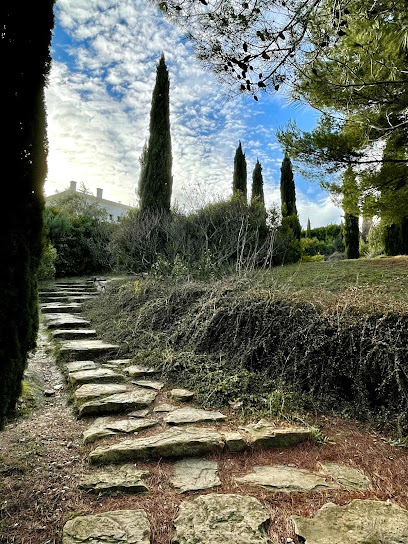
Fontaine Du Roi René
Aix-en-Provence's iconic fountain honoring King René, a symbol of history, culture, and Provençal heritage on the vibrant Cours Mirabeau.
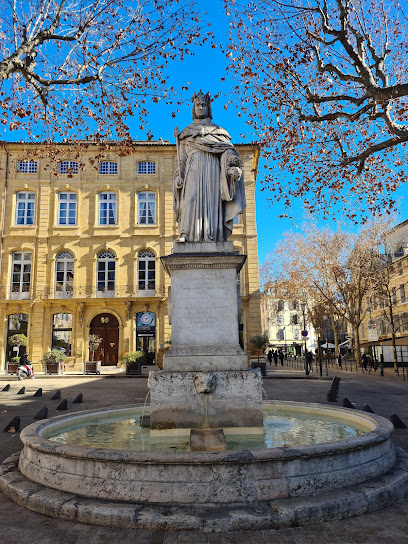
Unmissable attractions to see
Basilica of Notre-Dame-of-la-Garde at Marseille
Discover Marseille's iconic basilica, Notre-Dame de la Garde: a beacon of history, art, and panoramic views, offering an unforgettable experience high above the city.
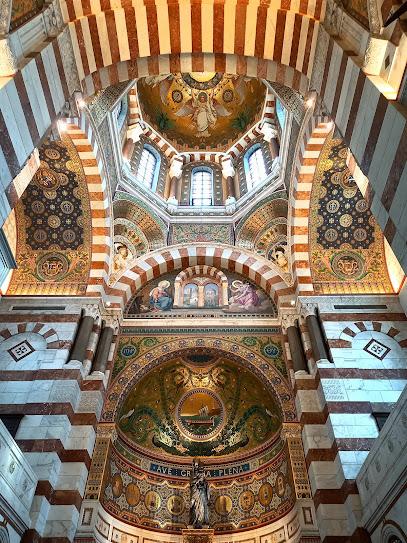
Orange Vélodrome
Experience the electric atmosphere of Marseille's iconic stadium, home to Olympique de Marseille, and a venue for world-class football, concerts, and unforgettable events.

Parc national des Calanques
Discover dramatic cliffs, hidden coves, and turquoise waters in France's Calanques National Park, a Mediterranean paradise offering hiking, boating, and stunning coastal scenery.

Mucem - Museum of Civilizations of Europe and the Mediterranean
Explore the captivating Museum of European and Mediterranean Civilizations in Marseille: A cultural journey through history, art, and stunning architecture on the Vieux Port.
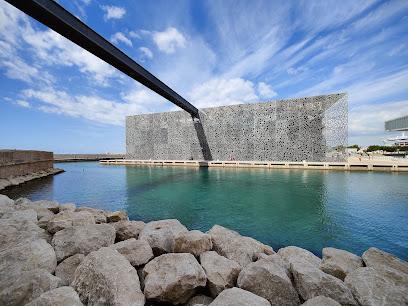
Le Sentier des Ocres
Discover a vibrant, natural masterpiece in the heart of Provence: hike through ochre cliffs and fairy chimneys sculpted by centuries of mining in Roussillon's stunning landscape.

Palais Longchamp
A majestic 19th-century monument in Marseille celebrating water, art, and nature, housing museums and gardens, easily accessible and historically significant.
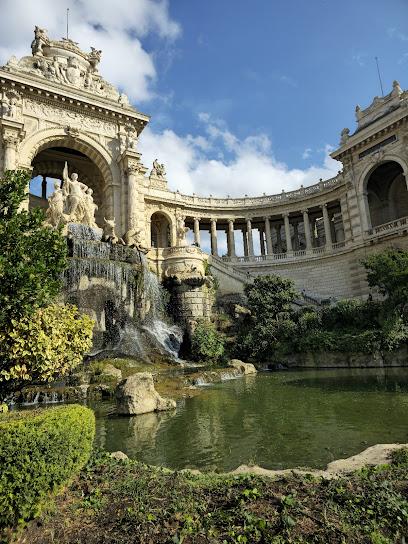
Cathédrale La Major
Discover Marseille's Cathédrale La Major: A stunning 19th-century cathedral blending Romanesque-Byzantine architecture, rich history, and cultural significance in the heart of the city.
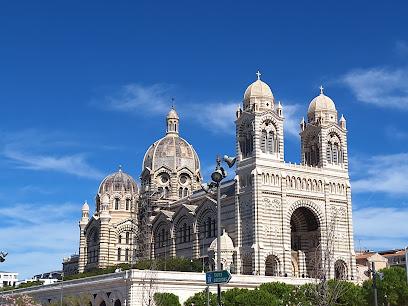
Port de Cassis
Discover the timeless charm of Port de Cassis, a picturesque harbor nestled between dramatic cliffs and vineyards, offering boat tours, fresh seafood, and a taste of authentic Provençal life.
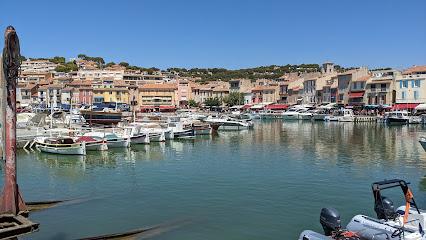
Parc naturel régional du Luberon
Discover the Luberon Regional Nature Park in Provence: a haven of natural beauty, charming villages, and authentic Provençal culture, perfect for hiking, cycling, and relaxation.
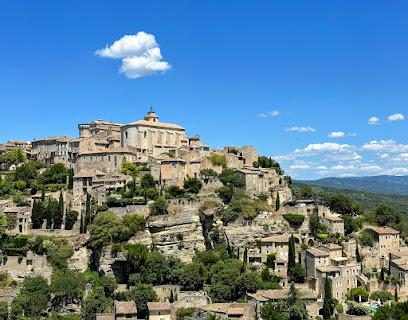
Parc Borély
Discover Marseille's enchanting Parc Borély: a blend of formal gardens, serene lakes, botanical collections, and historical landmarks, offering a tranquil escape for all visitors.

Fontaine de la Rotonde
Discover the iconic Fontaine de la Rotonde in Aix-en-Provence: a stunning Baroque fountain, a symbol of the city's rich history, art, and cultural heritage, and a must-see landmark.
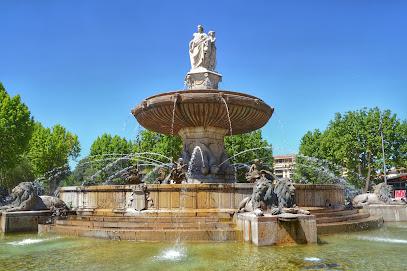
Château de Gordes
Explore the historic Château de Gordes, a stunning blend of medieval fortress and Renaissance palace, offering art exhibitions and panoramic views in the heart of Provence.
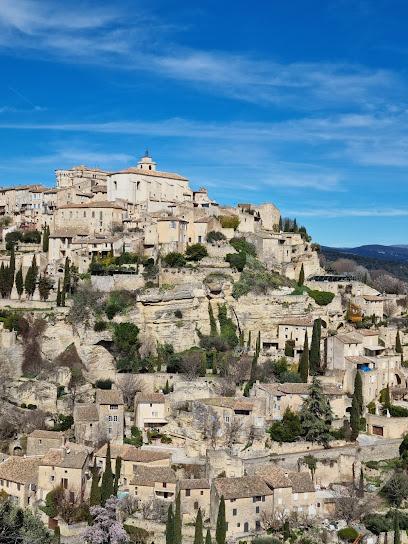
Abbaye Notre-Dame de Sénanque
Discover the serene beauty and rich history of Abbaye de Sénanque, a stunning Cistercian monastery surrounded by lavender fields in Provence.
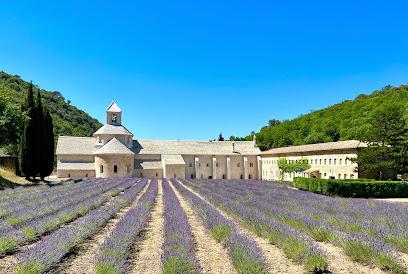
Calanque de Port-Miou
Explore the stunning Calanque de Port-Miou in Cassis, a natural paradise with breathtaking views, hiking trails, and crystal-clear waters.
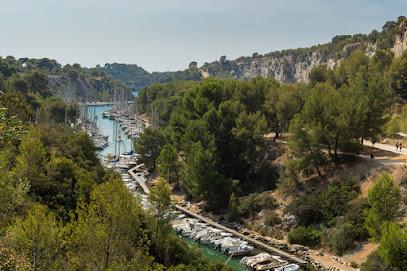
Plage Lumière
Discover Plage Lumière in La Ciotat: a family-friendly, accessible beach with historical ties to the Lumière brothers, offering a perfect blend of relaxation and recreation on the French Riviera.
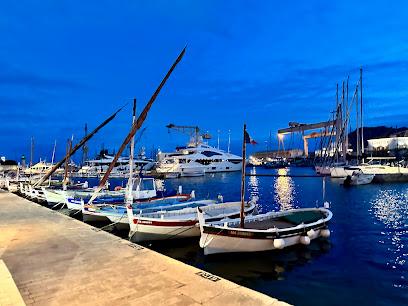
Essential places to dine
Les Fils à Maman Aix en Provence
Discover the charm of French cuisine with a twist at Les Fils à Maman in Aix-en-Provence, where every meal feels like home.
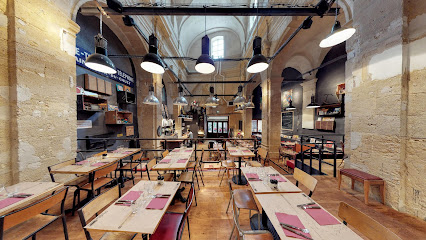
La Rotonde
Discover La Rotonde: A premier brasserie in Aix-en-Provence offering Mediterranean delights and exceptional meat dishes in an inviting atmosphere.
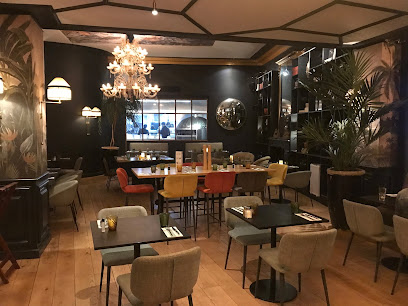
Lautraix
Experience authentic French cuisine at Lautraix in Aix-en-Provence, where tradition meets modern culinary art.
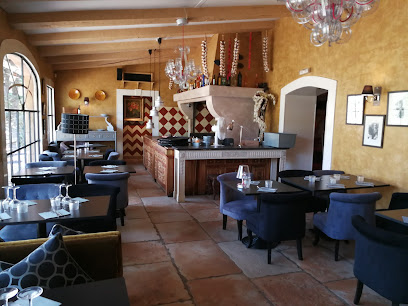
La Mado
Experience exquisite French cuisine at La Mado in Aix-en-Provence—where every dish tells a story through flavor.
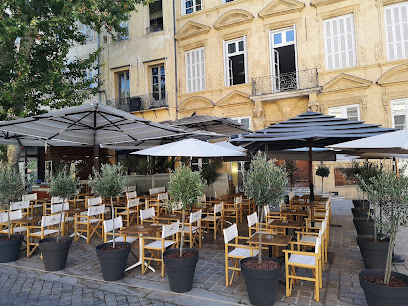
La Brocherie
Discover the authentic taste of French barbecue at La Brocherie in Aix-en-Provence - where tradition meets flavor.

Côté Cour
Discover exquisite French cuisine at Côté Cour in Aix-en-Provence - where culinary artistry meets local tradition.
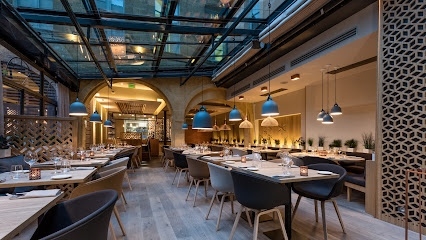
Le Bidule
Experience delightful dining at Le Bidule in Aix-en-Provence—where French elegance meets American comfort food.
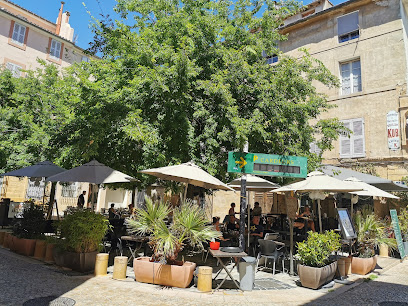
La Belle Epoque
Discover La Belle Epoque: A vibrant French restaurant offering exquisite cuisine, craft beers, and cocktails in the heart of Aix-en-Provence.
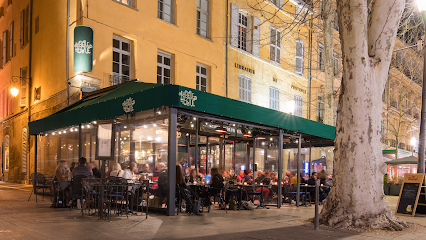
Drôle d'Endroit
Experience exquisite French and Mediterranean cuisine in an artistic setting at Drôle d'Endroit in Aix-en-Provence.
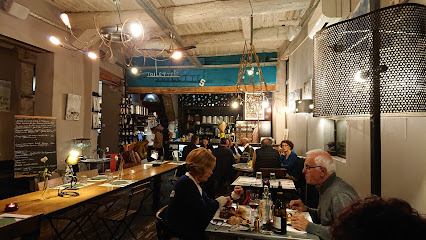
Licandro Le Bistro
Discover authentic French cuisine in Aix-en-Provence at Licandro Le Bistro - where every meal is a celebration of flavor and tradition.
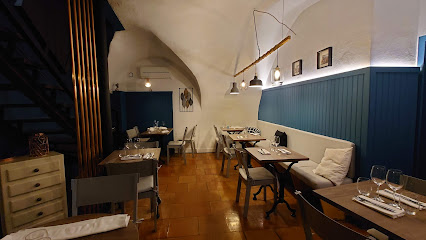
L'incontournable
Discover L'incontournable: A premier French and Mediterranean dining experience in the heart of Aix-en-Provence.
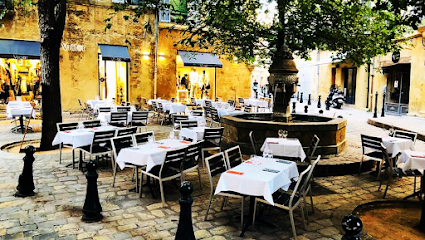
Le bouche à Oreille
Discover the essence of French cuisine at Le bouche à Oreille in Aix-en-Provence, where local flavors meet culinary artistry.
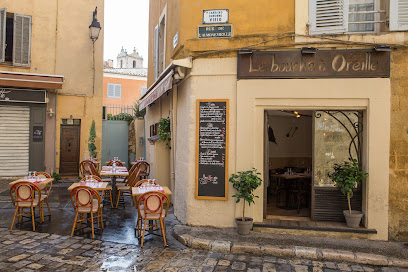
Restaurant Jacquou le Croquant Aix en Provence
Savor authentic French cuisine at Restaurant Jacquou le Croquant in Aix-en-Provence - a culinary treasure blending tradition with contemporary flair.
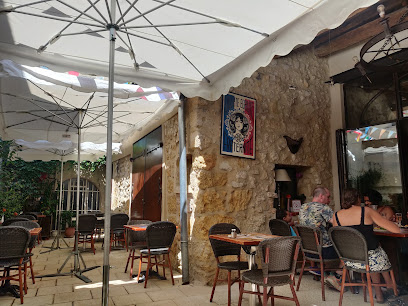
Le Bistrot
Experience authentic Provençal cuisine at Le Bistrot in Aix-en-Provence – where every meal is a taste of tradition and flavor.
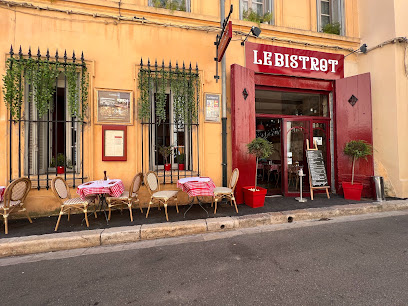
Les Inséparables Aix en Provence
Experience exquisite French and Mediterranean cuisine at Les Inséparables in Aix-en-Provence - a culinary gem in a charming city.
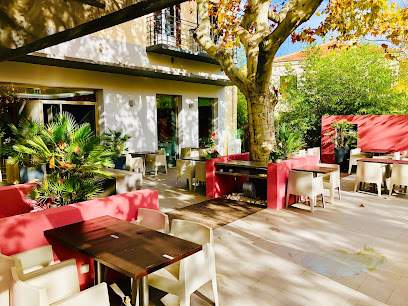
Markets, malls and hidden boutiques
Les Allées
Explore the vibrant Les Allées shopping mall in Aix-en-Provence, where local charm meets modern retail and dining experiences.
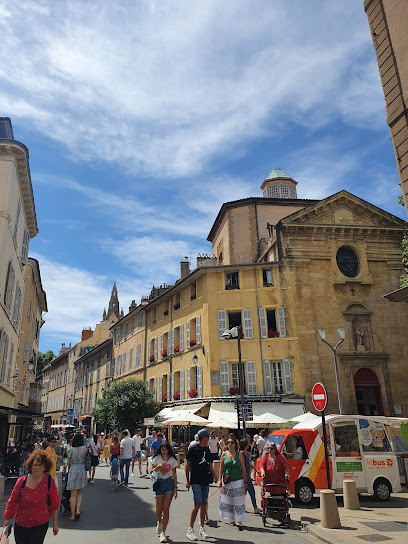
Nature and Discoveries
Explore Nature and Discoveries in Aix-en-Provence – a gift shop filled with unique treasures, eco-friendly products, and delightful surprises for every visitor.
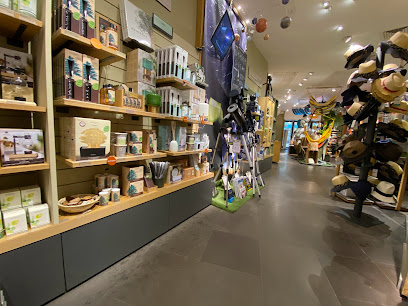
Blow Up
Explore Blow Up in Aix-en-Provence for a unique vintage clothing experience that combines style and history in every piece.
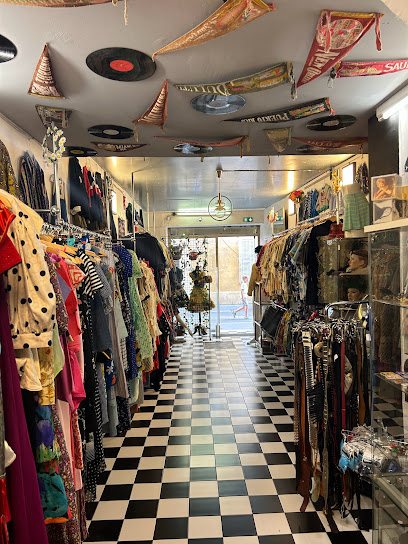
Casa
Explore Casa in Aix-en-Provence for unique gifts, home decor, and delightful treasures reflecting the charm of southern France.
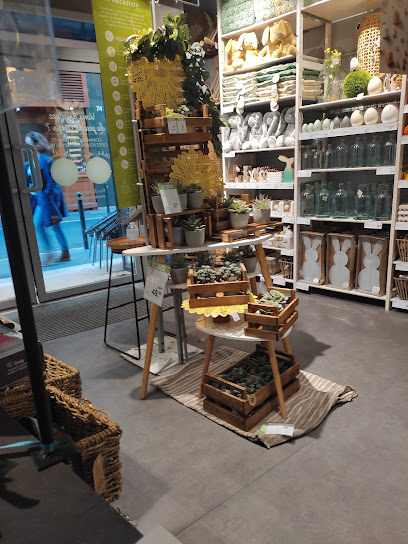
PYLONES
Explore PYLONES, the vibrant gift shop in Aix-en-Provence, offering unique fashion accessories, home goods, and delightful gifts for every occasion.
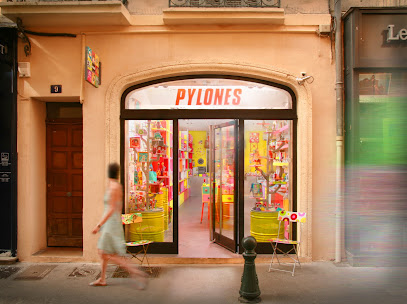
Boutique Dammann Frères Aix-en-provence
Experience the rich tradition of fine tea at Boutique Dammann Frères in Aix-en-Provence, where each cup tells a story of flavor and culture.
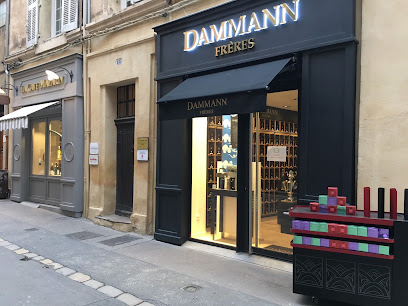
Aix & Co - Maison Onissia
Discover the elegance of Aix-en-Provence fashion at Aix & Co - Maison Onissia, where style meets sophistication in a charming setting.
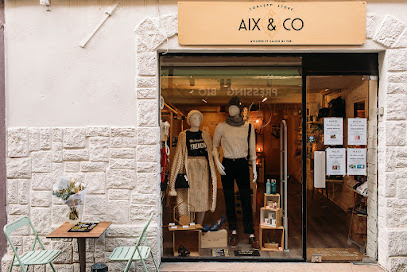
La Grande Boutique / Carlotta
Explore La Grande Boutique in Aix-en-Provence: A Fashion Haven for Women's Clothing, Accessories, and Footwear.
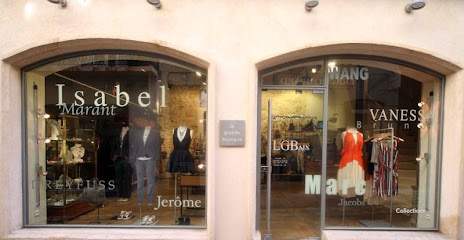
Shop Museums
Explore the artistic treasures of Aix-en-Provence at Shop Museums, a charming gift shop offering unique local crafts and memorable souvenirs.
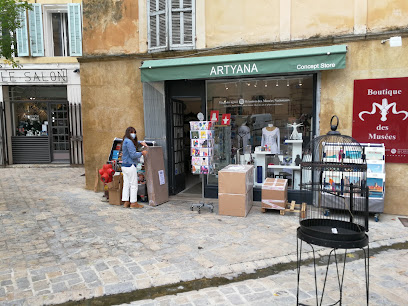
Le Secret des Sorciers
Uncover the magic of play at Le Secret des Sorciers, a unique gift shop in Aix-en-Provence offering enchanting toys and memorable souvenirs.
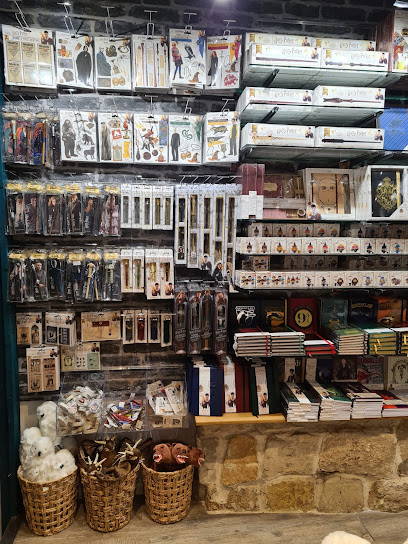
L'oiseau Bleu Concept Store - Dépôt vente
Explore L'oiseau Bleu Concept Store for a unique shopping experience in Aix-en-Provence, featuring antiques, fashion accessories, and local artisan treasures.
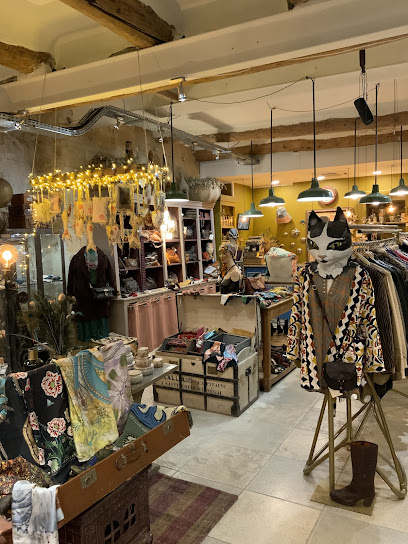
Le petit Souk Aix-en-Provence
Explore Le Petit Souk, a charming gift shop in Aix-en-Provence, offering unique toys, home goods, and delightful souvenirs for every traveler.
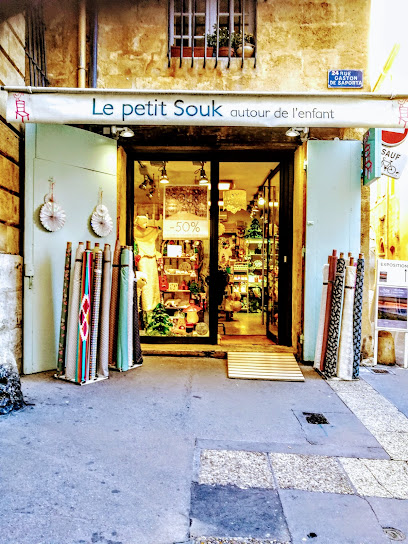
Boutique Aigle Aix-En-Provence
Explore stylish outdoor clothing at Boutique Aigle Aix-En-Provence, where fashion meets functionality in a charming Provencal atmosphere.
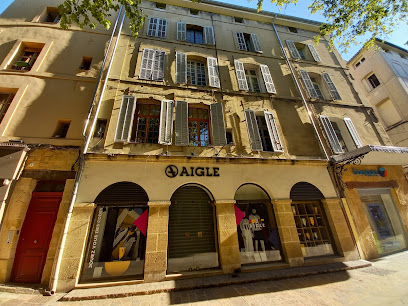
Maje
Discover Maje, a luxurious women's clothing store in Aix-en-Provence, offering elegant fashion, handbags, and accessories that embody modern French style.
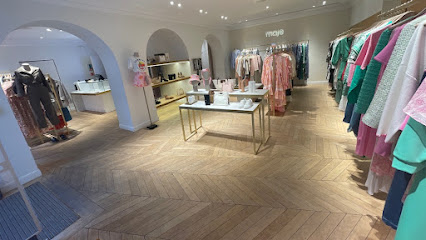
LULLI Aix-en-Provence
Discover LULLI Aix-en-Provence: your ultimate destination for exquisite fashion accessories, handbags, jewelry, and much more in a picturesque setting.
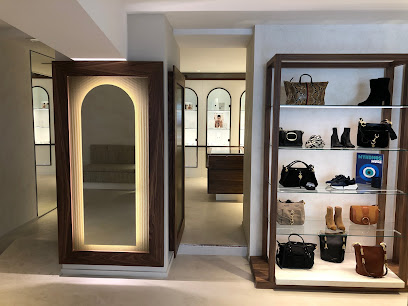
Essential bars & hidden hideouts
Bar Barracuda
Experience the vibrant nightlife of Aix-en-Provence at Bar Barracuda, where unique cocktails and lively atmosphere await every visitor.
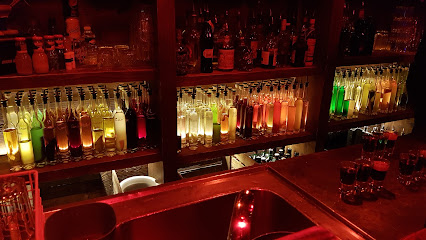
Pub O'Sullivan's
Discover the vibrant heart of Aix-en-Provence at Pub O'Sullivan's, where every sip and bite tells a story of local culture and camaraderie.
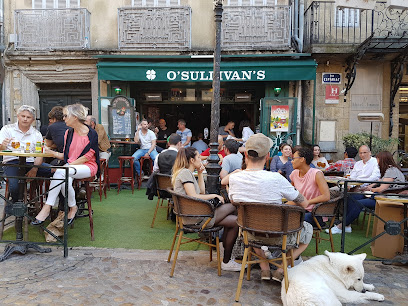
O'Shannon
Discover the heart of Aix-en-Provence nightlife at O'Shannon Pub, where great drinks and a vibrant atmosphere create unforgettable memories.
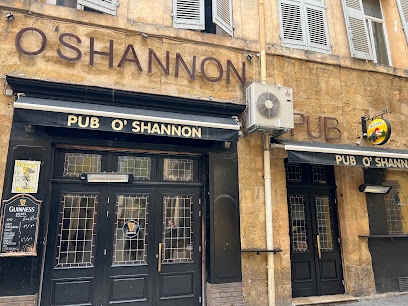
Le Brigand
Experience the vibrant ambiance and diverse drink selection at Le Brigand, a must-visit pub in the heart of Aix-en-Provence.
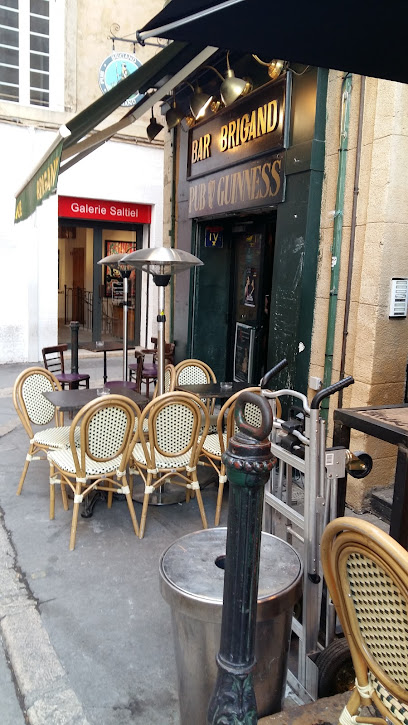
The Four Courts
Experience the lively atmosphere of The Four Courts, a must-visit pub in Aix-en-Provence, blending local flavors with an unforgettable ambiance.
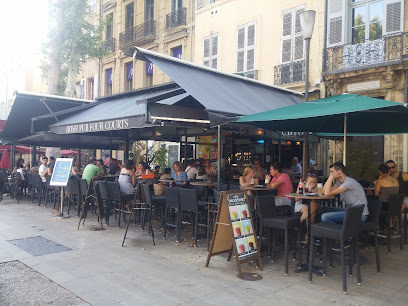
La Cocina Negra
Discover the vibrant nightlife of Aix-en-Provence at La Cocina Negra, where lively music and delightful cocktails create unforgettable evenings.
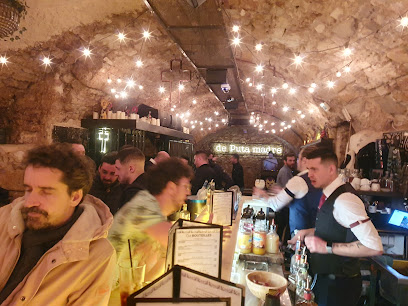
Le Vieux tonneau
Discover the charm of Le Vieux Tonneau, a top wine bar in Aix-en-Provence offering exquisite wines and savory tapas in a cozy setting.
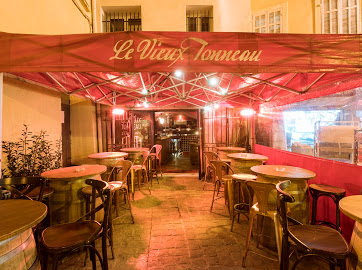
Le Manoir
Unwind in the heart of Aix-en-Provence at Le Manoir, where vibrant nightlife meets exquisite drinks in a stylish setting.
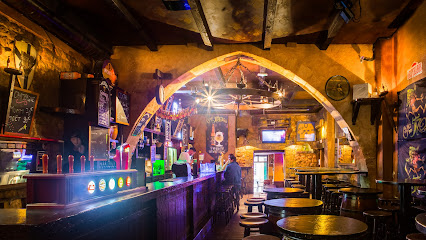
Bar des PTT
Experience the local nightlife at Bar des PTT in Aix-en-Provence, where vibrant ambiance meets affordable drinks for a memorable evening.
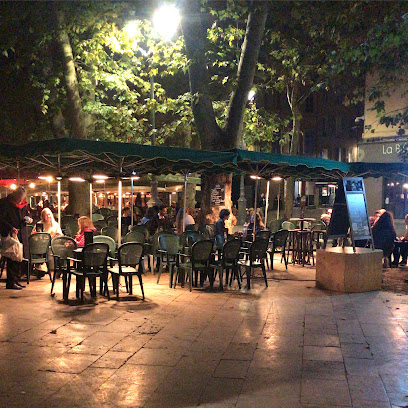
Céleste
Discover Céleste, the chic cocktail bar in Aix-en-Provence, offering unique drinks and an inviting atmosphere for unforgettable nights.
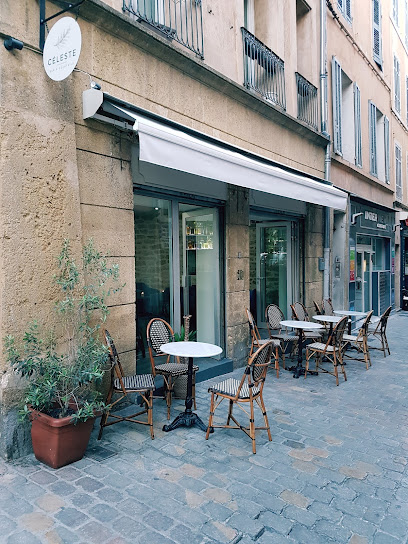
Bar à Bières
Experience the lively beer culture at Bar à Bières in Aix-en-Provence, where locals and tourists gather for a vibrant atmosphere and exceptional brews.
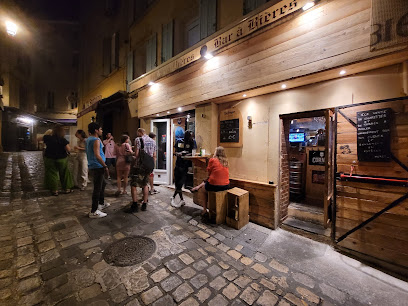
St James pub
Experience the vibrant nightlife of Aix-en-Provence at St. James Pub, where great drinks and a lively atmosphere await you.
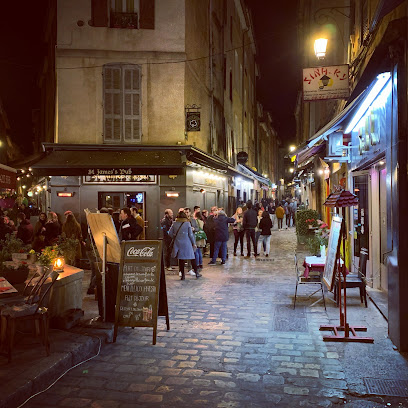
BACK to BAC - Aix-en-Provence
Discover BACK to BAC, a premier cocktail bar in Aix-en-Provence, offering innovative drinks and a vibrant atmosphere perfect for unwinding and socializing.
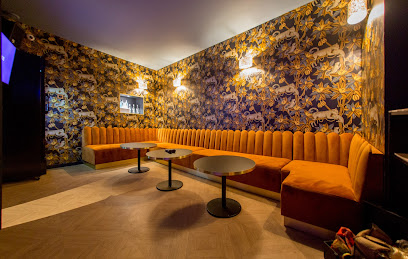
PUB THE KERRY
Discover the lively spirit of Aix-en-Provence at Pub The Kerry, where great drinks and entertainment meet in a warm atmosphere.
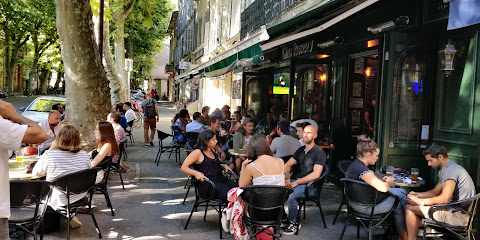
Travel experiences inspired by this city
Explore more travel diariesLocal Phrases
-
- HelloBonjour
[bon-zhoor] - GoodbyeAu revoir
[oh ruh-vwahr] - YesOui
[wee] - NoNon
[nohn] - Please/You're welcomeS'il vous plaît/De rien
[seel voo pleh/duh ryen] - Thank youMerci
[mehr-see] - Excuse me/SorryExcusez-moi/Désolé
[ehk-skew-zay mwah/deh-zoh-lay] - How are you?Comment ça va?
[koh-mohn sah vah] - Fine. And you?Bien. Et toi?
[byen. ay twah] - Do you speak English?Parlez-vous anglais?
[par-lay voo ahn-glay] - I don't understandJe ne comprends pas
[zhuh nuh kohm-prahnd pah]
- HelloBonjour
-
- I'd like to see the menu, pleaseJe voudrais voir la carte, s'il vous plaît
[zhuh voo-dray vwahr lah kart, seel voo pleh] - I don't eat meatJe ne mange pas de viande
[zhuh nuh mahnj pah duh vee-ahnd] - Cheers!Santé!
[sahn-tay] - I would like to pay, pleaseJe voudrais payer, s'il vous plaît
[zhuh voo-dray pay-ay, seel voo pleh]
- I'd like to see the menu, pleaseJe voudrais voir la carte, s'il vous plaît
-
- Help!Au secours!
[oh seh-koor] - Go away!Allez-vous en!
[ah-lay vooz ahn] - Call the Police!Appelez la police!
[ah-pay-lay lah poh-lees] - Call a doctor!Appelez un médecin!
[ah-pay-lay uh may-day-sahn] - I'm lostJe suis perdu
[zhuh swee pair-doo] - I'm illJe suis malade
[zhuh swee mah-lahd]
- Help!Au secours!
-
- I'd like to buy...Je voudrais acheter...
[zhuh voo-dray zah-shtay] - I'm just lookingJe regarde juste
[zhuh ruh-gahrd zhust] - How much is it?Combien ça coûte?
[kohn-byen sah koot] - That's too expensiveC'est trop cher
[say troh shair] - Can you lower the price?Pouvez-vous baisser le prix?
[poo-vez voo bay-say luh pree]
- I'd like to buy...Je voudrais acheter...
-
- What time is it?Quelle heure est-il?
[kel uhruh eh-teel] - It's one o'clockIl est une heure
[eel ehz oon uhruh] - Half past (10)Dix et demi
[dees ay duh-mee] - MorningMatin
[mah-tahn] - AfternoonAprès-midi
[ah-pray mee-dee] - EveningSoir
[swahr] - YesterdayHier
[yehr] - TodayAujourd'hui
[oh-zhoor-dwee] - TomorrowDemain
[duh-mahn] - 1Un
[uhn] - 2Deux
[duh] - 3Trois
[twah] - 4Quatre
[kat] - 5Cinq
[sank] - 6Six
[sees] - 7Sept
[set] - 8Huit
[weet] - 9Neuf
[nuf] - 10Dix
[dees]
- What time is it?Quelle heure est-il?
-
- Where's a/the...?Où est...?
[oo eh...] - What's the address?Quelle est l'adresse?
[kel eh lah-dress] - Can you show me (on the map)?Pouvez-vous me montrer (sur la carte)?
[poo-vez voo muh mohn-tray (soor lah kart)] - When's the next (bus)?Quand est le prochain (bus)?
[kahn eh luh proh-shahn (bus)] - A ticket (to ....)Un billet (pour ...)
[uhn bee-yay (poor)]
- Where's a/the...?Où est...?
History of Aix-en-Provence
-
Aix-en-Provence, originally known as Aquae Sextiae, was founded in 123 BC by the Roman consul Sextius Calvinus. The city was established as a thermal spa town, taking advantage of the natural hot springs in the area. These springs were believed to have healing properties, attracting Roman settlers and establishing Aix as a key location in the Roman province of Gallia Narbonensis.
-
During the 5th century, Aix-en-Provence faced numerous invasions by barbarian tribes, including the Visigoths and the Ostrogoths. The city was sacked several times, leading to a period of decline. Despite the turmoil, Aix managed to preserve its Roman heritage and infrastructure, which would later contribute to its revival in the Middle Ages.
-
In the 12th century, Aix-en-Provence became the capital of the County of Provence. This period marked a time of prosperity and growth for the city. The Counts of Provence established their court in Aix, turning it into a cultural and political hub. The construction of the Saint-Sauveur Cathedral and other significant buildings began during this era, laying the foundations for the city's rich architectural heritage.
-
Founded in 1409 by Louis II of Anjou, the University of Aix-Marseille became one of the oldest universities in France. It played a crucial role in the intellectual and cultural development of Aix-en-Provence. The university attracted scholars and students from across Europe, contributing to the city's reputation as a center of learning and culture.
-
The French Revolution brought significant changes to Aix-en-Provence. The city's aristocracy faced persecution, and many historic buildings were repurposed or destroyed. Despite the upheaval, Aix managed to retain its cultural identity. The period also saw the rise of notable figures, such as the revolutionary leader Mirabeau, who hailed from Aix-en-Provence.
-
Aix-en-Provence is famously known as the birthplace of the renowned post-impressionist painter Paul Cézanne. Born in 1839, Cézanne's works were deeply inspired by the landscapes of Aix and its surroundings. Sites such as Mont Sainte-Victoire frequently appeared in his paintings. Today, Cézanne's legacy is celebrated throughout the city, with numerous landmarks and museums dedicated to his life and work.
-
In the 20th and 21st centuries, Aix-en-Provence has continued to thrive as a vibrant cultural and academic center. The city has successfully preserved its historical charm while embracing modernity. Festivals, such as the Festival d'Aix-en-Provence, attract visitors from around the world, solidifying Aix's status as a key destination for arts and culture. The city's blend of historical significance and contemporary vitality makes it a unique and captivating place to explore.
Aix-en-Provence Essentials
-
Aix-en-Provence is located in the Provence-Alpes-Côte d'Azur region of southern France. The nearest international airport is Marseille Provence Airport (MRS), approximately 30 kilometers away. From the airport, you can take a shuttle bus to Aix-en-Provence, which takes around 30 minutes. Alternatively, the city is well-connected by train, and you can take a TGV (high-speed train) from Paris, which takes about 3 hours. Buses and rental cars are also available for those who prefer a road trip.
-
Aix-en-Provence is a compact city, and many attractions are within walking distance. For longer trips, the local bus system, Aix en Bus, is efficient and covers the city and its suburbs. Taxis are available but can be expensive. Renting a bike is a popular option for exploring the city. If you want to venture outside Aix, renting a car is the best option as it offers the freedom to explore the scenic Provence countryside at your own pace.
-
The official currency in France is the Euro (EUR). Credit and debit cards are widely accepted in restaurants, shops, and hotels. However, it is advisable to carry some cash for smaller establishments, markets, and rural areas. ATMs are readily available throughout the city. Contactless payments and mobile wallets are also becoming more common.
-
Aix-en-Provence is generally a safe city for tourists. However, as with any travel destination, it is important to take standard precautions. Avoid poorly lit areas at night and be mindful of your belongings in crowded places. The areas around the train station and certain parts of the city center can experience pickpocketing, so stay vigilant. Always keep your important documents and valuables secure.
-
In case of emergency, dial 112 for immediate assistance. This number works for police, fire, and medical emergencies. The main hospital, Centre Hospitalier du Pays d'Aix, is well-equipped to handle medical emergencies. Pharmacies are widely available for minor health issues and over-the-counter medications. Ensure you have travel insurance that covers medical emergencies.
-
Fashion: Do dress stylishly but comfortably. Aix-en-Provence is known for its chic fashion sense. Avoid overly casual attire like flip-flops and beachwear in the city center. Religion: Do respect religious sites by dressing modestly. Avoid loud behavior in churches and always ask for permission before taking photographs. Public Transport: Do be respectful and quiet on public transport. Avoid eating and drinking while on buses and trains. Greetings: Do greet people with a 'Bonjour' (Good morning) or 'Bonsoir' (Good evening) and a handshake. Avoid overly familiar greetings with strangers. Eating & Drinking: Do try local delicacies and wines. Avoid asking for ketchup or other condiments in finer dining establishments as it may be considered rude.
-
To experience Aix-en-Provence like a local, visit the bustling markets such as the Marché d'Aix on Place Richelme, where you can buy fresh produce, cheeses, and local specialties. Take a leisurely stroll along Cours Mirabeau, the city's main thoroughfare, and enjoy a coffee at one of the many cafés. Engage with locals, who are often friendly and eager to share stories about their city. Don't miss the chance to explore the Atelier Cézanne, the studio of the famous painter Paul Cézanne, and the Sainte-Victoire Mountain, which inspired many of his works.
Trending Landmark in Aix-en-Provence
-
Fontaine de la Rotonde
-
Hôtel de Caumont
-
Musée Granet
-
Paroisse Cathédrale Saint Sauveur Aix-en-Provence
-
The Village Des Automates
-
Promenade de la Torse
-
Cézanne's studio
-
Place d'Albertas
-
Pavillon Vendôme
-
Tourist Information Center
-
Château de la Gaude
-
Place des Quatre-Dauphins
-
Promenade de l'Arc
-
Field of the Painters
-
Fontaine Du Roi René
Nearby Cities to Aix-en-Provence
-
Things To Do in Marseille
-
Things To Do in Avignon
-
Things To Do in Nîmes
-
Things To Do in Saint-Tropez
-
Things To Do in Cannes
-
Things To Do in Montpellier
-
Things To Do in Nice
-
Things To Do in Fontvieille
-
Things To Do in Moneghetti
-
Things To Do in Les Moneghetti
-
Things To Do in La Condamine
-
Things To Do in Monaco-Ville
-
Things To Do in Monte Carlo
-
Things To Do in Larvotto
-
Things To Do in La Rousse



















